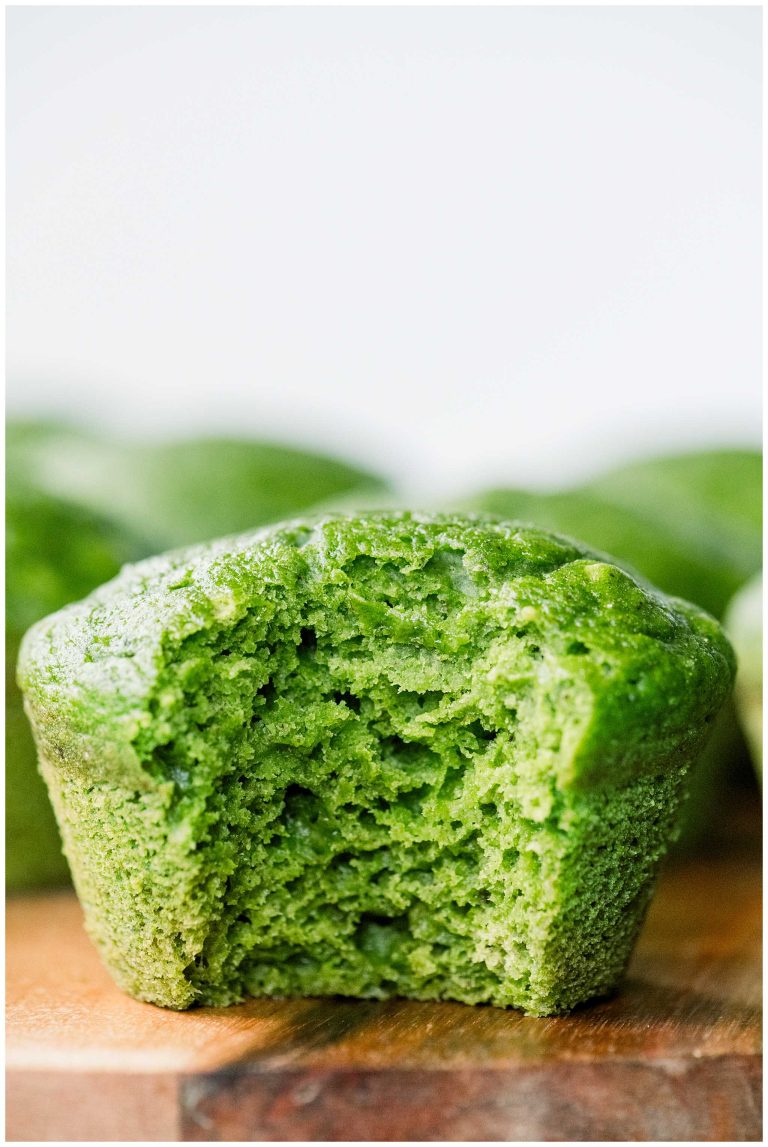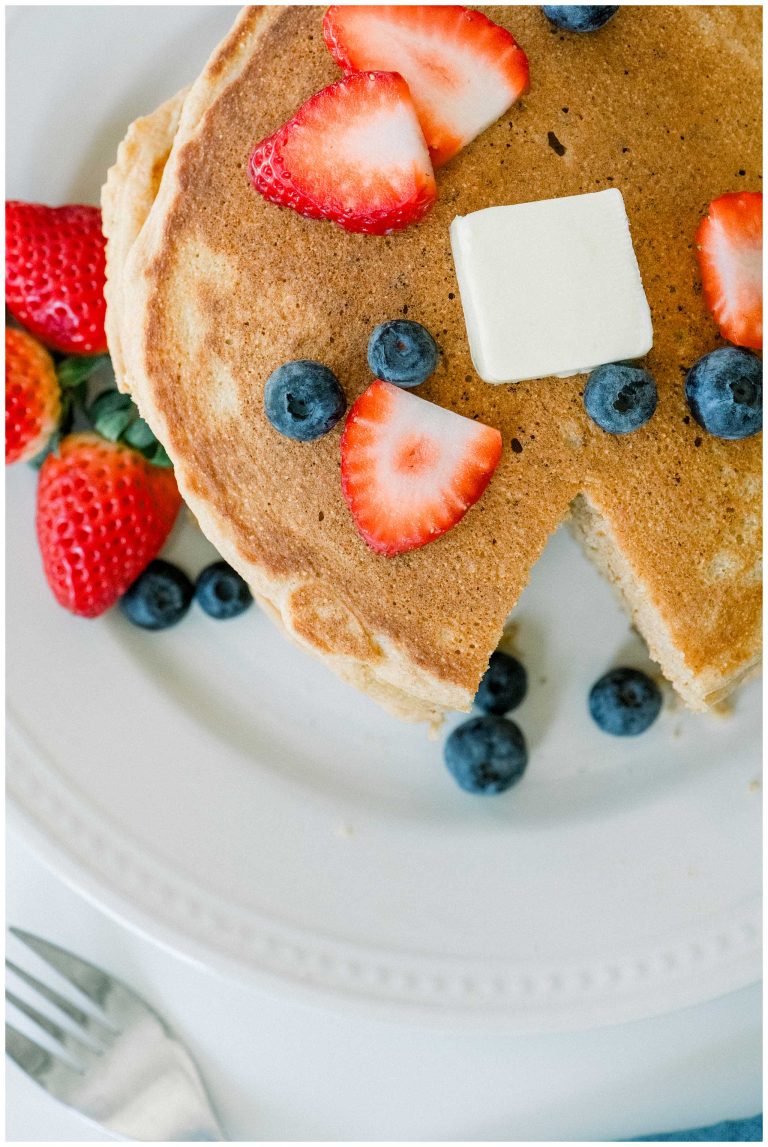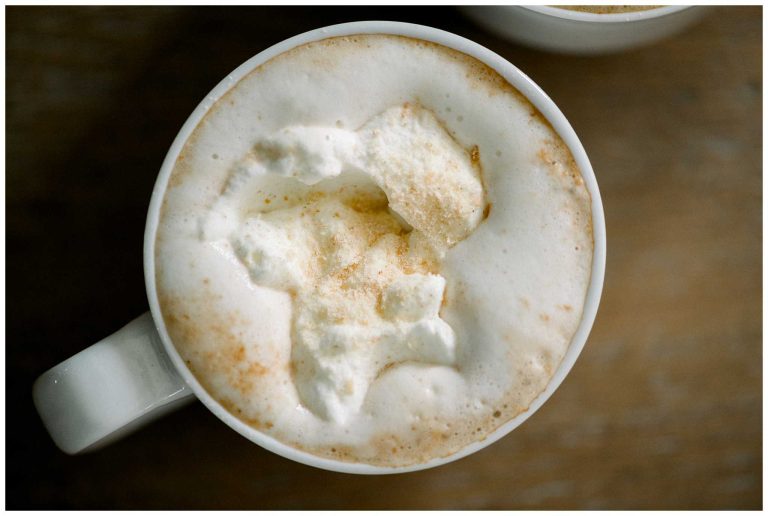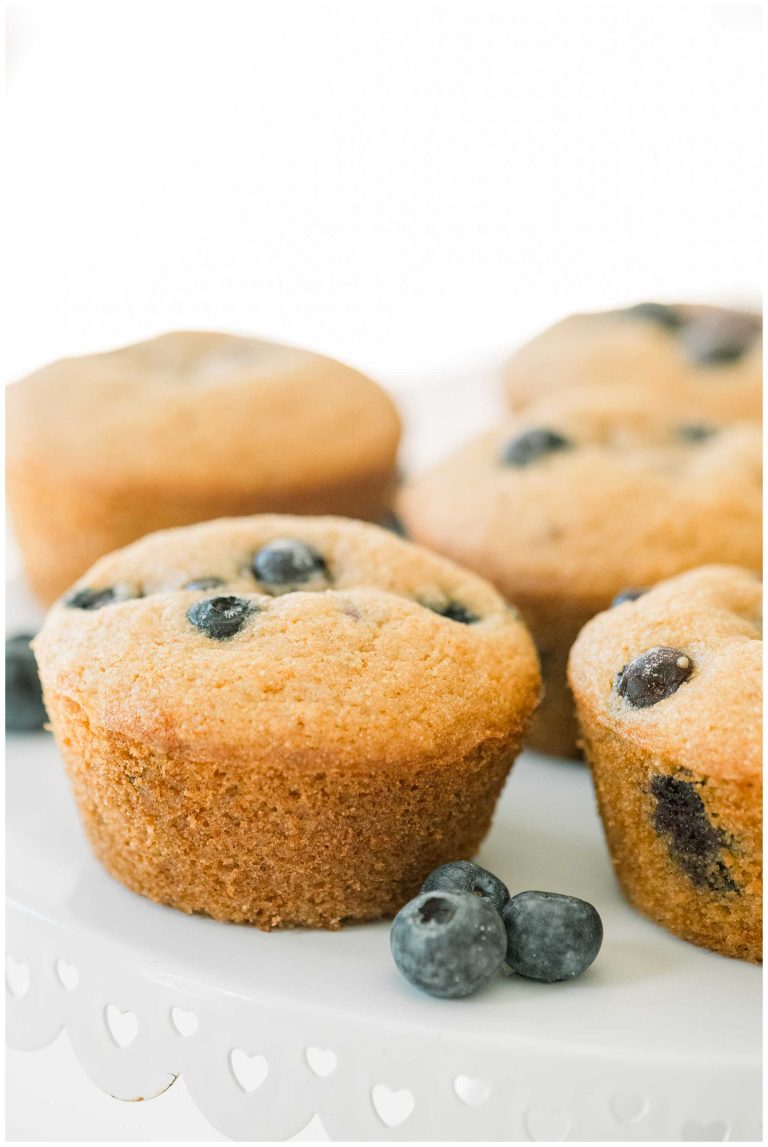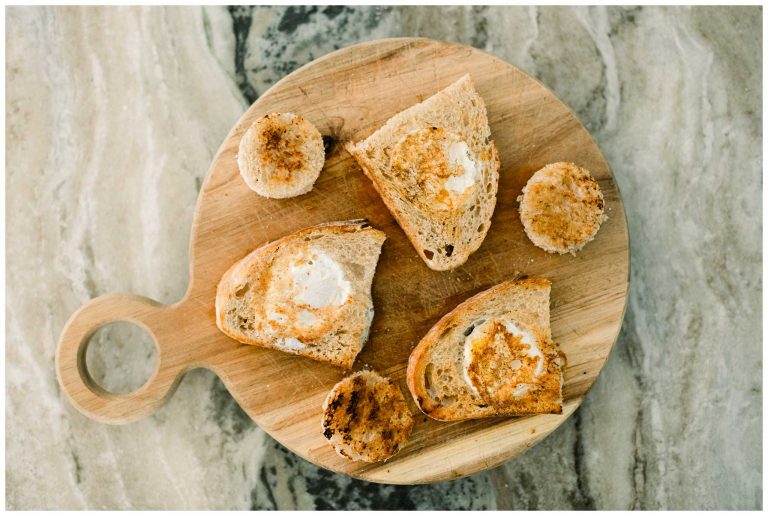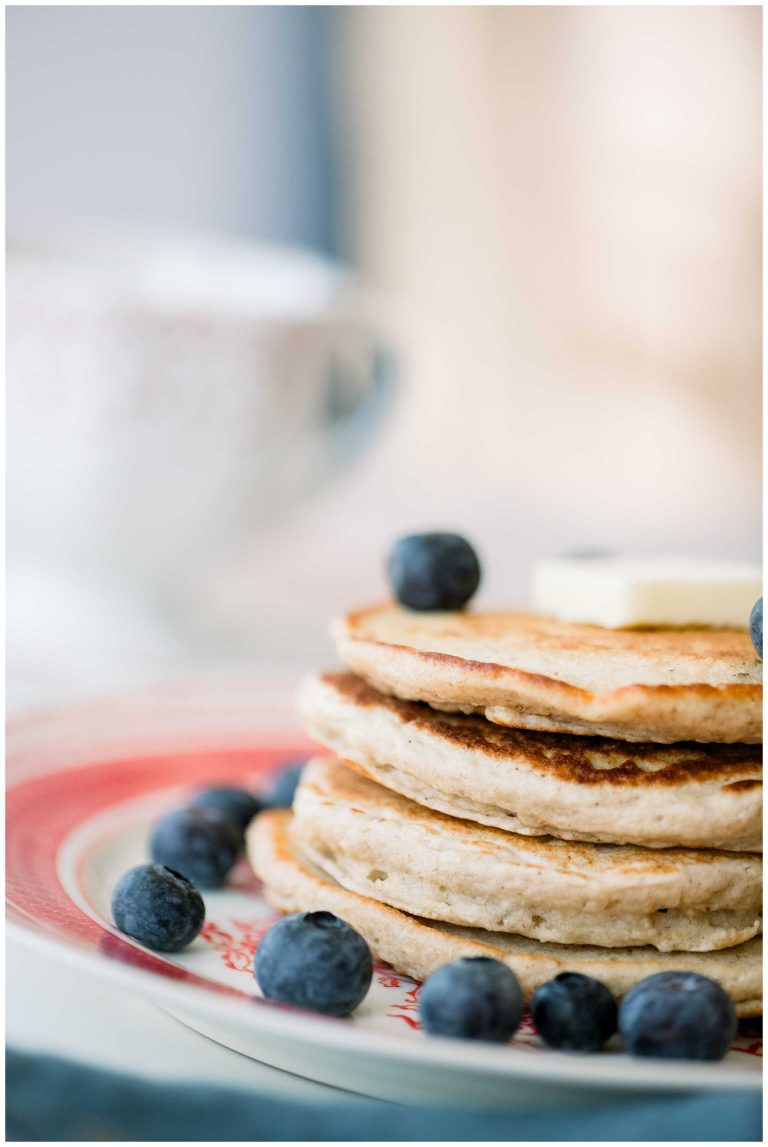Buttermilk Fruit Smoothie
Do you ever look at an ingredient for a recipe that you’re trying to make and think “Oh great.” I do that with buttermilk. I don’t use buttermilk every week, it’s just not in my typical wheelhouse of meals I make for my family. But when you need that ½ cup of buttermilk, you have to buy the entire container. This USED to get wasted in my house (terrible, I know!) but once I started making this Buttermilk Fruit Smoothie, I do not fear recipes that call for the obscure half a cup anymore!
This might just me a “me thing.” But I bet there are others who need creative ways to use buttermilk. Honestly, this recipe is so good that my kids ask me to pick up buttermilk so they can enjoy this smoothie!
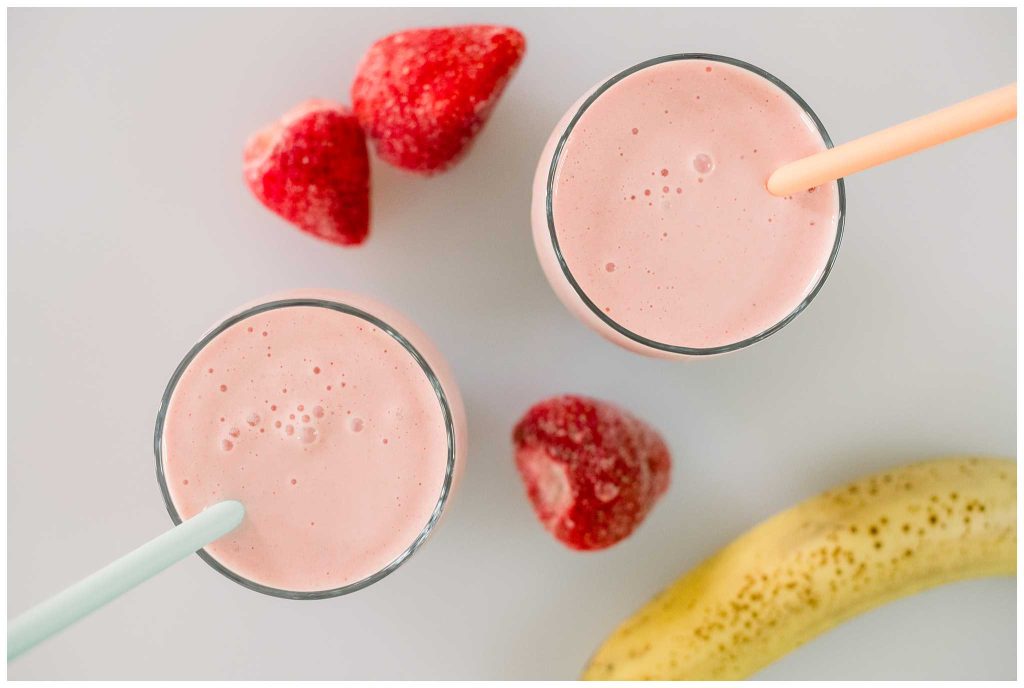
Some links on this site are affiliate links. If you buy something, I may earn a small commission (aka more ingredients for future recipes!)
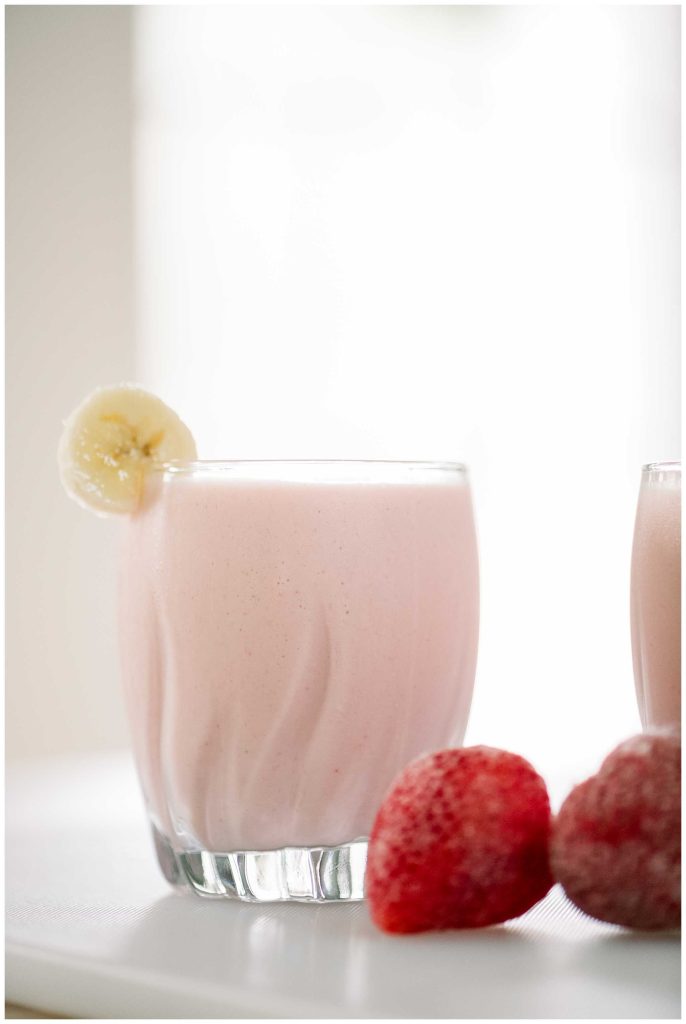
Why You’ll Love This Recipe
Simple Ingredients
The mission of Real and Rustic is to provide simple, nourishing recipes that are easy to make and not complicated ingredients. This buttermilk fruit smoothie recipe completely checks that box. It is filled with healthy fats, vitamins, protein, and nutrients without an overcomplicated process.
Uses up leftover buttermilk
As I mentioned above, I dreaded recipes that use buttermilk because I hate waste. So much so that one time I made buttermilk biscuits with regular milk. Spoiler, they were reeeally bland. With this buttermilk fruit smoothie, I no longer fear wasting buttermilk! That’s a win!
Customizable Flavors
You can use basically any frozen fruit that you have on hand for this buttermilk fruit smoothie recipe. I will give you some variations below, but some of my families favorites to use are strawberry (that’s what’s photographed and in the recipe card), pineapple, mixed berry, mango, peach… the list goes on!
Ingredient List
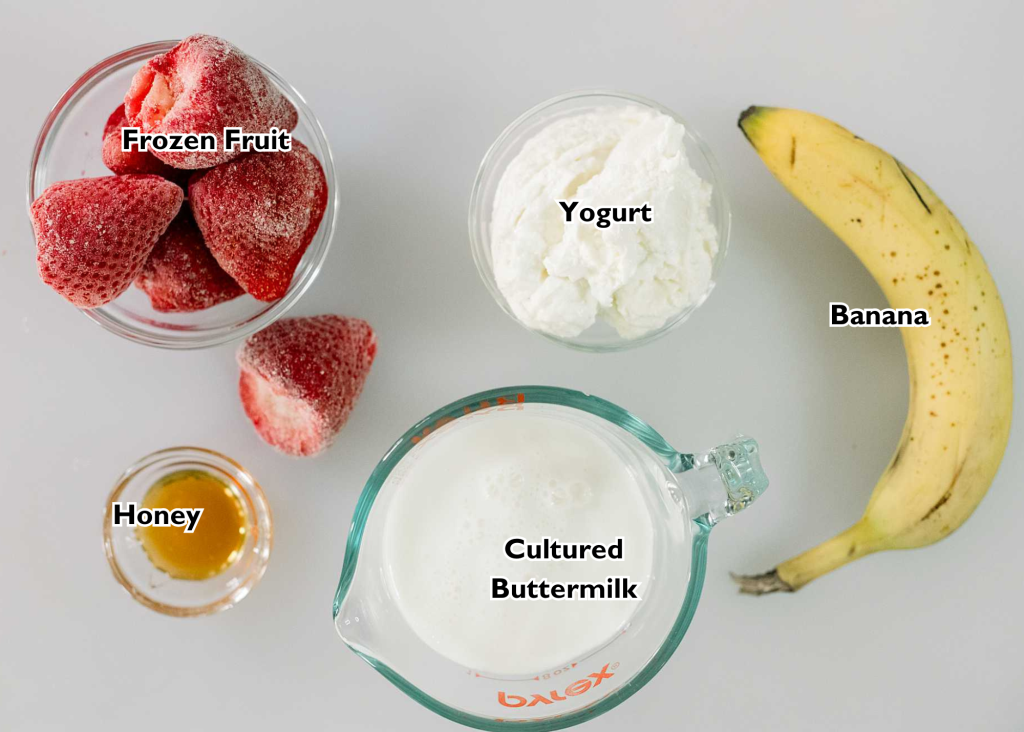
Banana
Use a very ripe banana for this buttermilk smoothie recipe. The green bananas don’t have as much sugar and can be bitter. If I have a very ripe banana that no one is going to eat, I will either use it in a smoothie or make banana bread with it.
Strawberries
Frozen strawberries are what I use in this recipe and in the recipe card. But you use any frozen fruit you’d like. If you are using fresh fruit, then the banana needs to be frozen. This is because this buttermilk fruit smoothie recipe doesn’t use any ice.
Yogurt
I make a big batch of full-fat Greek Yogurt every week in my Instant Pot. It’s really easy to do! You can get the recipe here OR pick up full-fat yogurt at your grocery store.
Cultured full-fat buttermilk
I am all about healthy fats, and buttermilk is no exception! Buttermilk makes this smoothie so creamy and amazing!
Honey
Honey is my go-to smoothie sweetener. Feel free to replace it with maple syrup, cane sugar, or any sweetener of your choice.
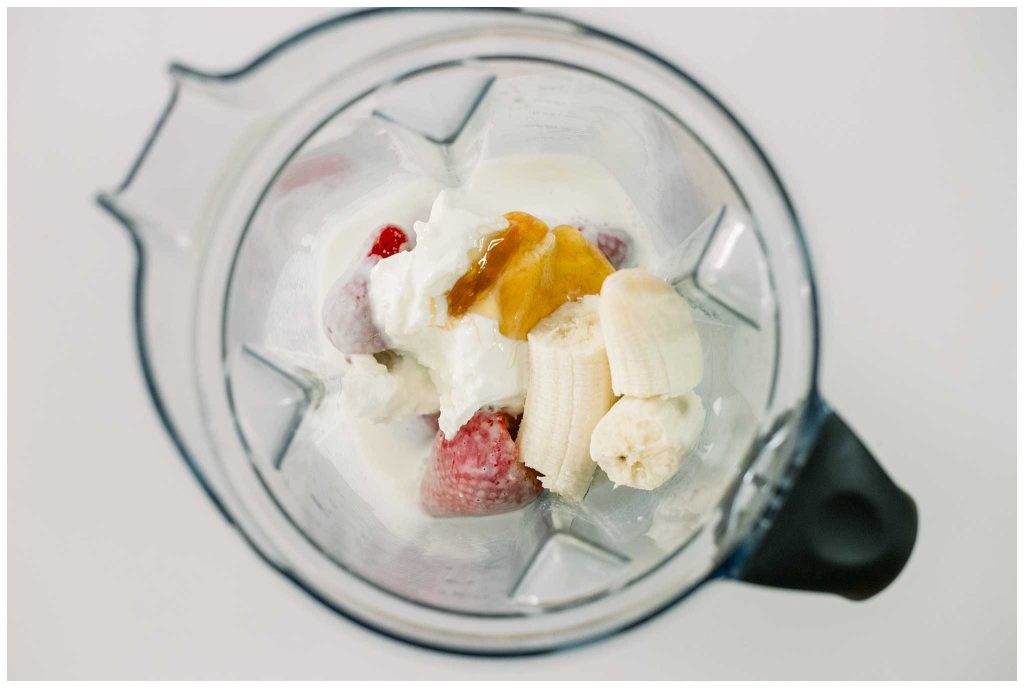
Tools and Equipment
Blender
I have praised my sturdy Vitamix blender many many times. It’s been my dependable workhorse in the kitchen for over a decade and it’s still going strong!
Step-by-Step Instructions
Layer Ingredients In Blender
Start by adding the liquid ingredients to the blender first—this helps the blades move more freely and ensures a smoother blend. Begin with the buttermilk and yogurt, then add the frozen fruit, banana, and finally drizzle the honey on top. Pro tip: If you’re not a fan of sticky honey clinging to the sides of your blender, drizzle it over the fruit so it mixes better.
Blend The Smoothie
Secure the blender lid tightly (this part is crucial—don’t ask how I learned the hard way). Start blending on a low setting to break down the frozen fruit, then gradually increase the speed to high. Blend for about 30-45 seconds or until you don’t see any large fruit chunks swirling around. If the smoothie seems too thick, you can add a splash of buttermilk to thin it out.
Taste and Tweak
Before serving, take a quick taste. If the smoothie isn’t sweet enough for your liking, blend in an extra drizzle of honey. If the texture is a bit thick for sipping, thin it out with a splash of water, juice, or even more buttermilk.
Serve and Enjoy
Pour the smoothie into your favorite glasses, toss in a straw if you’re feeling fancy, and enjoy it right away! The natural sweetness and creaminess of the buttermilk shine brightest when the smoothie is fresh.
Clean Your Blender (the “Unspoken” Last Step!)
For an easy cleanup, rinse out the blender as soon as it’s empty. A quick rinse saves you from battling dried smoothie remnants later. I usually add warm water and a drop of dish soap, blend for a few seconds, and rinse again—it’s as simple as that!
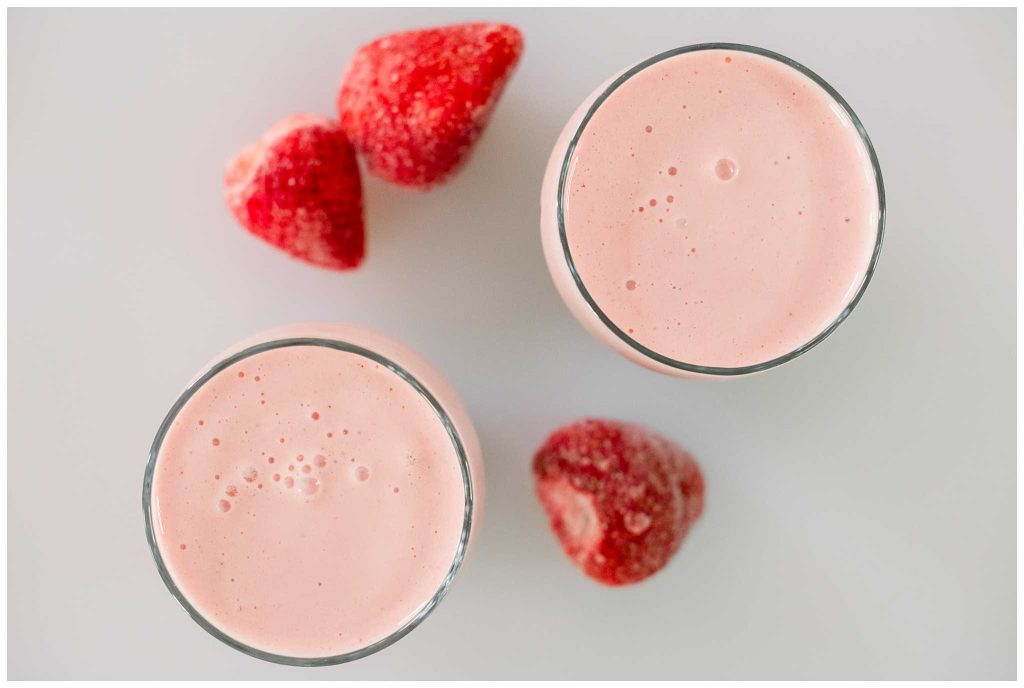
Variations and Customizations
One of the best things about this buttermilk fruit smoothie recipe is how easy it is to customize. With just a simple swap of the frozen fruit, you can create a completely new flavor. Here are some of my family’s favorite variations, plus a few ideas to inspire your creativity.
Pineapple Buttermilk Smoothie
Replace the frozen strawberries with frozen pineapple chunks for a taste of the tropics. If you want to create a healthy pina colada flavor, then replace the milk for coconut milk. Yum!
Mango Buttermilk Smoothie
Swap out the strawberries for frozen mango chunks. Mango’s naturally velvety texture makes this smoothie extra creamy. Add a small splash of vanilla extract to enhance the dessert-like flavor.
Peach Buttermilk Smoothie
Use frozen peach slices instead of strawberries. Sprinkle in a pinch of cinnamon or nutmeg. It tastes like a peach cobbler in a glass!
Blueberry Buttermilk Smoothie
Replace the frozen strawberries with frozen blueberries and skip the banana for the blueberry version of this recipe.
Cherry Vanilla Buttermilk Smoothie
Substitute the strawberries with frozen dark cherries, and add a teaspoon of vanilla extract for a smoothie reminiscent of a cherry milkshake.
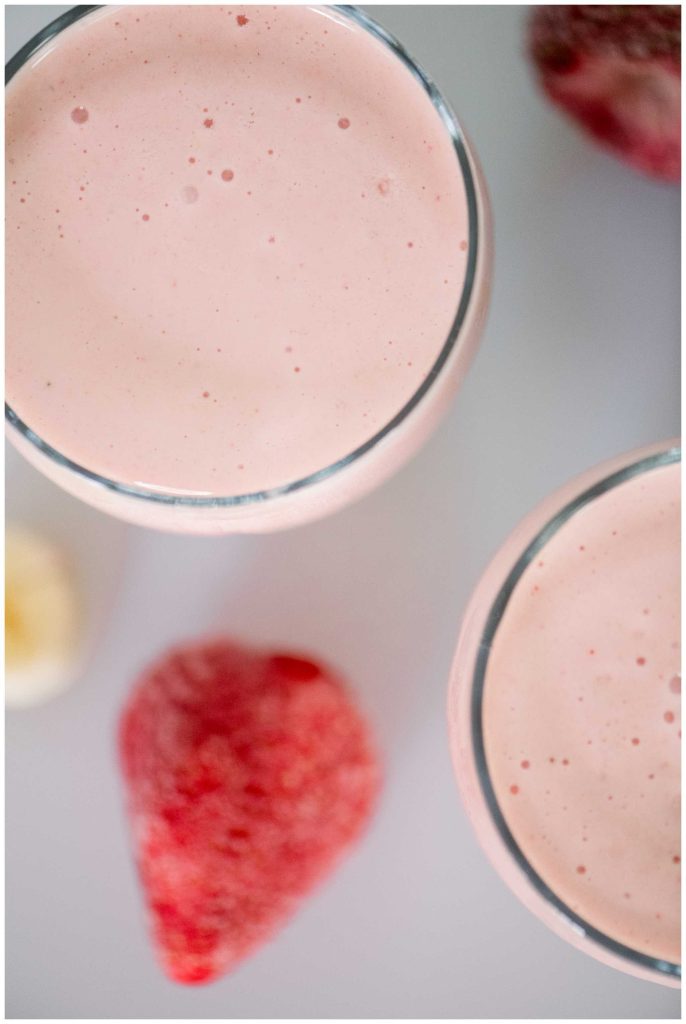
Is buttermilk good for you?
Buttermilk is absolutely good for you! It’s not only a tangy addition to smoothies, pancakes, and dressings, but it’s also loaded with nutrients. Buttermilk is rich in calcium, protein, and probiotics (if it’s cultured), making it a great choice for promoting bone health and digestion. It’s also lower in fat than you’d expect because traditional buttermilk is actually the liquid left behind after churning butter—not the buttery indulgence its name suggests.
The full-fat cultured buttermilk used in this smoothie offers healthy fats that help keep you feeling full and satisfied. And the probiotics? They’re little gut heroes that can boost digestion and overall gut health. All in all, this humble ingredient might just deserve a permanent spot in your fridge.
What is cultured buttermilk?
Cultured buttermilk is the type most of us find in stores today. Unlike traditional buttermilk (more on that below), cultured buttermilk doesn’t come from making butter. Instead, it’s made by adding lactic acid bacteria to milk, which ferments it and gives it that tangy taste and thick consistency. Think of it as yogurt’s slightly thinner, tangier cousin. The fermentation process also gives cultured buttermilk its probiotic benefits, making it a digestive-friendly ingredient.
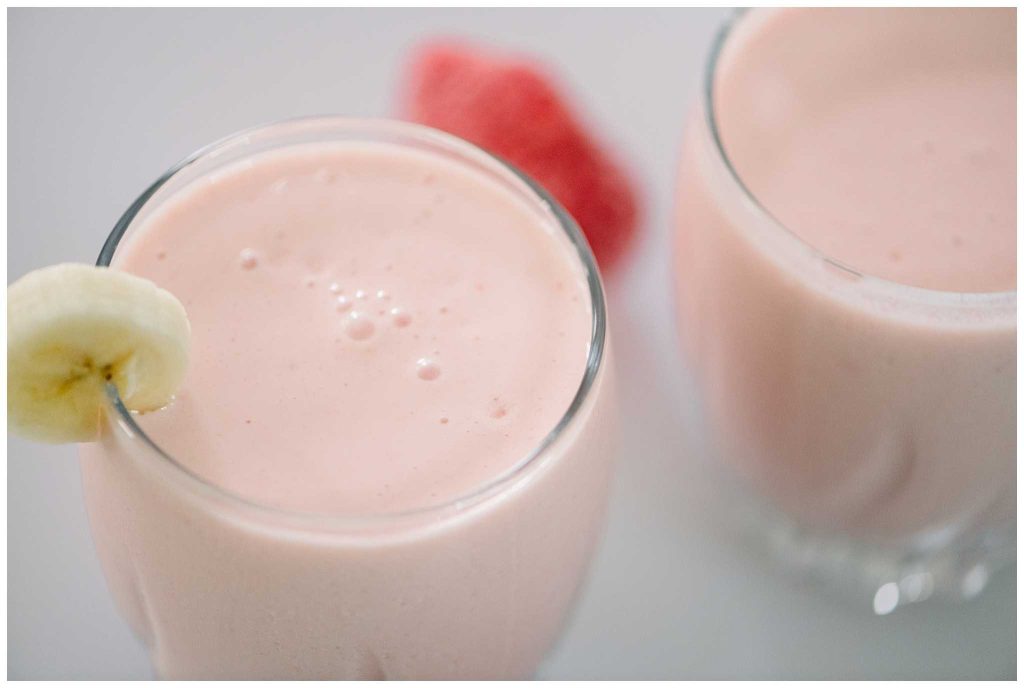
Cultured Buttermilk vs Buttermilk from butter making
Here’s where things get a little confusing—there are actually two types of buttermilk.
Traditional Buttermilk: This is the liquid left over when you churn butter from cream. It’s thinner than cultured buttermilk and has a slightly tangy flavor. It’s more common in home butter-making than at the grocery store these days, so unless you’re churning butter at home, you’re probably not using this kind.
Cultured Buttermilk: The superstar of most modern recipes, cultured buttermilk is thicker and tangier than traditional buttermilk. It’s made by fermenting milk with friendly bacteria, and it’s the kind we’re blending into our smoothies today.
While both types are technically “buttermilk,” they’re used a bit differently. Traditional buttermilk is closer to skim milk in texture and works well in certain baking recipes but might not pack the creamy punch needed for something like a smoothie. Cultured buttermilk, on the other hand, is thicker and tangier, making it the perfect base for this creamy, nutrient-packed treat. If you drink raw milk and make raw milk butter, then the traditional buttermilk from that will also have great probiotic benefits. You can use that buttermilk in this recipe as well, but it will not be as creamy as cultured buttermilk.
Buttermilk Fruit Smoothie Recipe
Buttermilk Fruit Smoothie
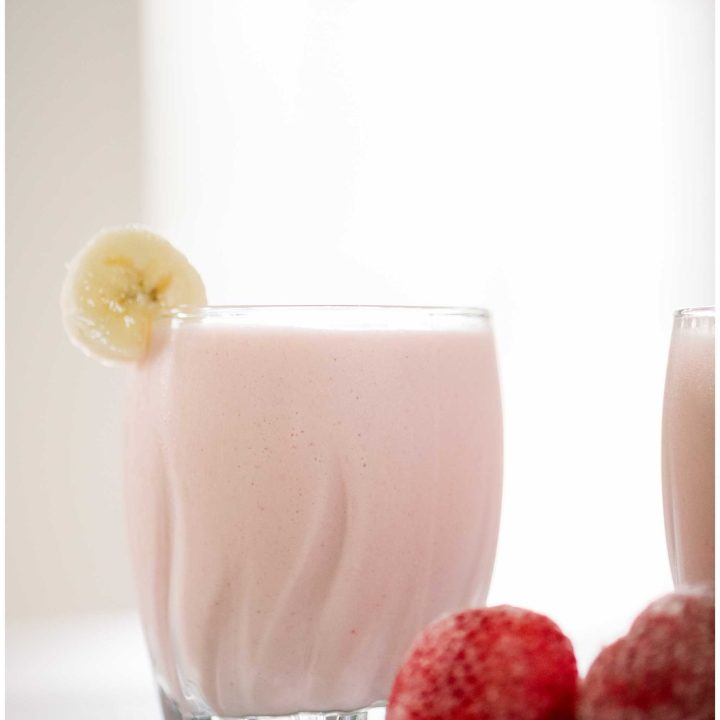
This creamy buttermilk fruit smoothie is a delicious way to use up leftover buttermilk! Packed with frozen fruit, yogurt, and a touch of honey, it's a quick, nutritious treat you can customize with your favorite fruits. Perfect for busy mornings or a refreshing snack!
Ingredients
- 1 cup cultured full-fat buttermilk
- ½ cup plain yogurt
- 1 very ripe banana, cut into chunks
- 1½ cup frozen strawberries
- 1 teaspoon honey, or to taste
Instructions
- In a blender, combine buttermilk, yogurt, banana, strawberries, and honey. Add the liquids to the blender first to help the blades work through the frozen ingredients more easily.
- Blend until smooth. Serve immediately.
Notes
Nutrition Information:
Yield:
2Serving Size:
1Amount Per Serving: Calories: 223Total Fat: 5gSaturated Fat: 3gTrans Fat: 0gUnsaturated Fat: 2gCholesterol: 17mgSodium: 172mgCarbohydrates: 39gFiber: 4gProtein: 8g
